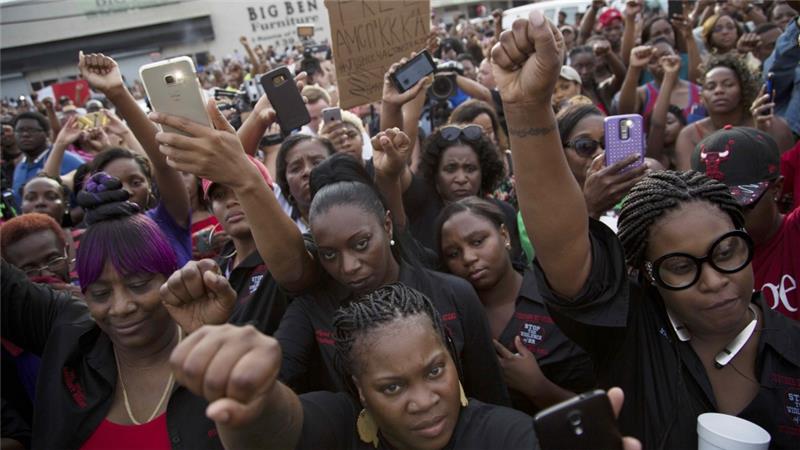OPINION BY Max du Preez
White South Africans should not feel threatened by or even be uncomfortable with the surge of black consciousness and black pride.
They – we, because I write this as a white South African male – should rather try to understand where it comes from and what it means.
We shouldn’t get all worked up when the 13-year-old Zulaikha Patel with her formidable afro and raised fist expresses herself strongly on what it’s like to be a young black woman in a mostly white environment.
We should rather show respect to black teenagers who stand up and fight for their own dignity and that of their peers.
We shouldn’t overreact if black compatriots vent their feelings about blackness in strong terms and dish out a few klaps in our direction because they feel that white is still the norm in our society.
It doesn’t help when whites say things like “come on, apartheid was buried in 1994, snap out of it” or “get over your race obsession”.
Or, in the case of schools and universities, “you knew in advance what the rules and demographics of these institutions were, and you still went there, what did you expect?”
Radical student movements can sometimes be irritating in their methods and their use of ideological jargon and quotes from long-dead philosophers from elsewhere in the word, but we simply have to try and decode their words and accept that they represent widely felt frustrations among younger black generations.
We whites should rather ponder how it happened that the black consciousness prophet Steve Biko is now, 39 years after his death, read and quoted more than at any time before.
How is it, we should ask, that the black youth still feel alienated and marginalised in a country with an overwhelming black majority and a mostly black government? I think we white South Africans should try harder to look beyond our own white middle class problems and perceived victimhood and acknowledge that our black compatriots had adjusted and compromised more than we did since 1994; that most of us are indeed still at the top of the food chain; that there are more than enough cause for black South Africans to firmly assert themselves.
We whites love to call upon the bill of rights in the constitution to protect our own rights, but we tend to forget that the same document undertakes to “heal the divisions of the past and establish a society based on democratic values, social justice and fundamental human rights” and “improve the quality of life of all citizens and free the potential of each person.” It also states: “Everyone has inherent dignity and the right to have their dignity respected and protected.”
It is telling that black consciousness, which has been with us for well over four decades, is only blossoming two decades after we became a democracy. The BC-oriented parties, the PAC and Azapo, have disappeared from the scene.
The response of many whites here and elsewhere to the cry “Black Lives Matter” is that it should read “All Lives Matter”.
The American civil rights activist Angela Davis had a clear response to this in her speech in Pretoria last week. “If all lives mattered, we would not proclaim that black lives mattered,” she said. The statement does imply that all lives matter, including women’s lives, LBGT people’s lives, Muslim lives, indigenous people’s lives, white working class lives; but to substitute it with ‘all lives” would presuppose that “we somehow magically transcended race”, she said.
It cannot be denied that much of the lack of development and progress in South Africa since 1994 can be blamed on the ineptness, corruption, cronyism and maladministration of successive ANC governments. This is especially true of the criminal neglect of the education given to black youth in townships, squatter camps and deep rural areas and of historically black universities.
But this doesn’t tell the whole story of the resurgence of black consciousness and isn’t a valid argument to use to discredit it.
Too many of us whites behave as if the slate was wiped clean in 1994 and as if there was a 50/50 division between black and white, “them” and “us”.
The Afrikaner historian Hermann Giliomee reminded us last week in a controversial piece on the legacy of Hendrik Verwoerd that “demographyis destiny” was the one dictum that has always applied in history.
We whites are so obsessed with our “minority rights” and the so-called “injustice” of black economic empowerment and affirmative action that we lose perspective and fail to see the bigger picture of the entire South African nation.
Black South Africans clearly experience this as selfishness, arrogance and racism.
It is in everybody’s interest, certainly also in the interests of the white minority, that black South Africans feel confident, empowered, recognised and respected. Until that happens, there will be a lot of anger, frustration and even instability and whites will increasingly feel under siege.
If that means that we whites have to be more sensitive, understand better and sometimes listen rather than speak, then that is what we have to do.
We have to realise that if we have a more just and egalitarian society, there would be much less motivation for race-based assertiveness. That is something we middle class whites can help achieve.
[Source: News24]





 WhatsApp us
WhatsApp us 

